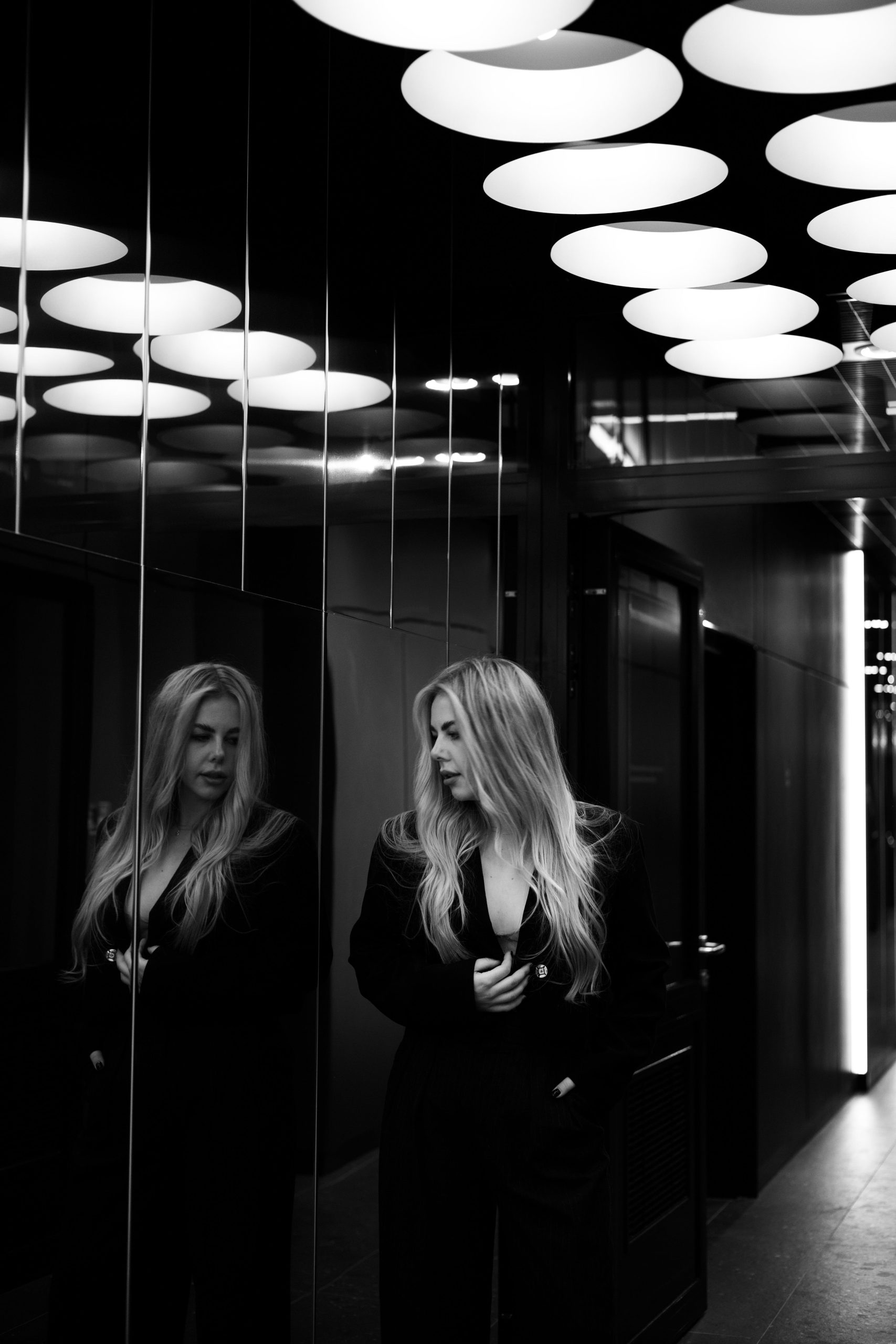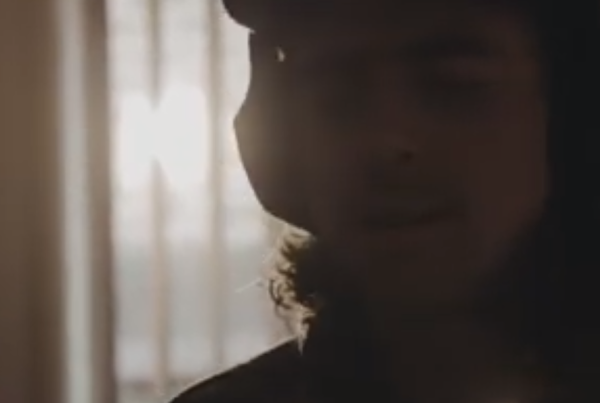Podcast: Play in new window | Download
Subscribe: Apple Podcasts | RSS
In this episode of the CF Strong podcast, co-host Brad Dryburgh engages in an open dialogue with six young adults living with cystic fibrosis (CF) about the often-sensitive topic of body image.
As the eighth episode in the series, each guest, reflects on their personal experiences and struggles with body image, shedding light on the unique challenges faced by individuals with CF.
The candid conversations touch upon issues such as acne, weight gain, societal perceptions, and the journey towards self-acceptance. The guests share their personal triumphs and the liberating moments when they embraced their bodies.
Tune in to the Podcast to hear first-person stories, gain insights and discover coping strategies.
Transcript
Voice Over: Welcome to the CF Strong Podcast. CF Strong covers the successes and challenges faced by those living with cystic fibrosis. You’ll hear first-person stories, conversations with health professionals, friends and partners. Just a heads up, guests may share their personal views about treatments and health management, but please remember, this is not medical advice and you should always follow the advice of your clinic team regarding your health.
Brad: G’day everyone and welcome to this incredibly exciting new season of the CF Strong Podcast. I’m your host and fellow CF patient Bradley Dryburgh. And as a 20-something-year-old living with cystic fibrosis, I know that this decade of our life is not only challenging, but rather it comes with some big questions we ask of ourselves. I’ve taken the time to sit down with six guests who like me, are all in their twenties living with cystic fibrosis as they share their honest and unique perspectives on 10 big questions across 10 separate episodes. I’ll ask one question of all six of our guests in this particular order. You can expect to hear answers from Adam, Blake, Caitlin, Ellie, Sam, and Taylor. In this eighth episode of our series, we’ll hear from each of our six guests as they answer the question. It’s not uncommon to hear that some people with CF experience challenges with body image. Have you had any experience with this personally?
Adam: Yeah, I used to always feel really sad about being underweight. Um, but I just learned to love the skinny boy aesthetic. Um, and I don’t, yeah, I don’t know. I just don’t really care what people think about my body because if they knew, I think they’d be pretty impressed. I think they’d be like, oh, keep, keep going, keep going. You’re doing really well, you know, you’re born with CF. Like, yeah, uh, yeah, it makes sense that this is the way it is. So I think it’s just a lack of understanding from people, but it was pretty liberating the day that I, that I, realised that it doesn’t really matter what people think, it’s just about how I perceive myself. That’s like the, the, the most important thing.
Brad: What age do you believe you were, if you can recall, when you felt liberated by that thought?
Adam: Definitely after high school. Um, teenage years are so crazy, uh, and teenagers are so crazy themselves. So probably 1920 was the real, like coming, coming to terms or accepting the way that I look.
Blake: Uh, I think, uh, I think everybody does really, you know, obviously with, you know, my body type is just sort of, you know, I’m, you know, five foot, 11, whatever on the, you know, you know, a little bit taller than average, I guess. I don’t know. And I’ve always been pretty skinny and lanky. So that, that was a massive thing I sort of dealt with, especially in school, you know, primary school a little bit. I was always short and skinny. And then, you know, once I hit high school, that’s when, you know, all of those issues become way worse. But, um, you know, it’s sort of, you know, it, it’s sort of died down a little bit now. I’m not as worried about it anymore, but they do, you know, it, it goes back to the fitness and wellness thing of, um, you know, I, I don’t feel like I can really complain about how my body looks ’cause I am not currently doing anything to fix it. Um, you know, there’s, uh, you know, 10 beers after a show in Wagga don’t really help the, uh, the physique. So, uh, so yeah, but again, like I’ve, you know, I haven’t got anyone in my life that, you know, makes me feel bad about my body or anything like that. So, um, so yeah, it’s, uh, you know, there, there come of times where you do think about it, but, um, I think overall I’m, I’m pretty good with it.
Caitlin: Uh, a hundred per cent. Um, again, I think it’s very hard to just be an adolescent in itself. And then being an adolescent female and then having CF on top of that, um, it’s very easy to compare yourself to other people. Um, and just, you know, being very happy with body image in general, such as like bloating or scars or, um, having like needles in you, for example, like I have a Porter Cats, so that’s always on show. So, um, yeah, I’ve definitely had experiences with that and that’s just another challenge that you have to slowly overcome, I guess.
Ellie: Yeah, this one is definitely, probably the hardest. Um, not gonna lie. I’ve had, uh, and maybe not discussed regularly, like quite severe body image issues. Um, I think potentially like growing up being told like, oh, you know, as, as a young kid, it kind of sounds quite nice being told that you can probably eat whatever you want and, you know, not necessarily like, have to worry too much about your weight, um, and kind of getting comments around, oh, you’ll never put on weight, or, like, you’ll never, you’ll never be fat, um, or anything like that. Um, I think like almost was more negative than useful. Um, I, and, and, and the gym, like I mentioned, kind of also didn’t like more on the later side of it. Going through like the different phases didn’t really help, but, um, I definitely almost have like, like a massive fear around getting bigger. Like it scares me quite a lot and I think that’s potentially why I bounce around like from lots of activities because I’m like trying to find the one that will kind of keep me where I’m at. Um, I also definitely have felt like having gone to clinic almost relief and they’re like, oh, your weight hasn’t changed, or, oh, you’re looking, it’s gone down a little bit. Like, are you eating the same? I’m like, yeah, like I’m, but I don’t know like kind of what that has stemmed from. But obviously, somewhere along the lines of like, you know, learning about how food’s different for cf, it’s kind of, kind of, um, you know, I’ve felt like I need to stay small ’cause I’ve told I would never not be small.
Brad: Your identity almost gets a little bit wrapped up in that image.
Ellie: Yeah, pretty much. Yeah. So that’s definitely, you know, something that I’ve, I’ve struggled with a lot.
Sam: Oh, big time. Uh, big, big, big time. I, unfortunately when I was younger and still do suffer from quite severe acne. Um, so as a teen man mate, I can tell you, going through teenage hood, battling acne, battling CF, battling all that kind of stuff, your mentals take a big hit. Um, but in the crazy thing, my, um, a good mate of mine in high school, he had acne as well. He was a year older than me, and when mine was starting to get really bad, he just, he pulled me aside one day and goes, Hey mate, this sucks it’s shit. But this is gonna, if you can get through this, you can get through anything, mental body image, that kind of stuff. It’s heavy, but if you can get through it, your, your, your strength of mind and I guess the way you view other people and how you view, view yourself will just go beyond I guess that, um, I guess materialistic point of view. And it’s bloody hard and you got, you got every single day, you, you gotta wake up and still go, I’m stronger than this. I’m stronger than any of this and get through it. But, um, it’s there, it’s there, it’s heavy. Um, but yeah, again, the way I get through it is just by being physically fit and healthy. If I can feel my body be strong and be healthy, that’s all that matters. It doesn’t matter if it’s breaking out of acne or I’m looking a bit thin if I’m not on my right diet, if I’m fit and strong, that’s all that matters in the end.
Tayla: Yeah. So body image, I think since track after I was 40 kilos before I started, and I’m 180 centimetres tall, 183 between there, depends who measures me at the hospital, Um, but I, I was quite underweight and I know I was. Um, but like obviously as a teenager entering your early twenties, when you’re that skinny, you kind of like, you get praised for it all the time. Uh, I wish, like I could not, like I could just eat as much as you could and like not put it in any weight. And I used to get so frustrated with that, but then I also kind of liked it because I knew no matter what I ate, I wasn’t gonna get like super fat. But, um, even though I was frustrated with my body not putting on more weight when we got to the 40-kilo mark and it kept trying to drop, I was doing everything I could. Um, but I think body image is now on track after with weight gain, like I’m someone who’s been like sickly skinny my entire life. Like no double chin, like, you know, super skinny arms, super skinny legs where they looked like chicken legs, like drumsticks, and like, but skinnier. Um, yeah, I think struggling with accepting yourself then and going, yeah, I look good for me. I’m doing the best I can, you know, I look great. And then all of a sudden putting on weight with how society is for women especially, and I know it’s there for guys as well. Um, you put on weight, oh gosh, you put on weight, like, you know, and it’s kind of like an internalized fear I feel like for a lot of people. Um, whereas my body image isn’t too great at the moment. , I have struggled with the weight gain quite a lot. Um, yeah, I think it’s just part of life. I think everyone deals with it, but you chuck CF in the mix and I feel like you’re like, oh, that never used to happen. Why? Why am I gaining weight now? Like, I haven’t changed my food, I haven’t changed my lifestyle, the activity I do like 10,000 steps every day, like, what’s happening. So, um, I think it’s difficult. I mean, like, I have a gut now, didn’t ever have one of those before. So like, yeah, you get, you get your rolls and stuff and you’re like, well, what is this? And, um, I mean, you can feel pretty crappy about yourself for sure. Um, but yeah, I’m still, it’s unchartered waters, I’m not gonna lie.
Brad: Thank you so much for listening to this episode of our series. We thank you for taking the time to sit down and hear the value that each of our six guests provides. And we wanna thank them for taking the time to be a part of the series two. We hope that this has not only been informative, um, but also refreshing to hear that there are many different perspectives to each of these questions and the challenges we face as CF patients. Once again, I’m your host Bradley Dryer. Thank you so much for tuning in to the CF Strong podcast.
Voiceover: Thanks for listening to this episode of the CF Strong Podcast. Make sure you subscribe on your favourite podcast listening platform so you don’t miss the next episode. And if you enjoyed this podcast, we’d really appreciate if you could leave us a review. It helps other people find CF Strong or share us with your friends. Also, a quick reminder that the views expressed in the CF Strong Podcast may not be reflective of Cystic fibrosis community care’s viewpoints. The podcasts are designed to share information and provide insight into the lives of those living with cystic fibrosis around Australia. This podcast was made possible thanks to support provided by the Australian government. Thanks for listening, and we’ll talk to you next time.




